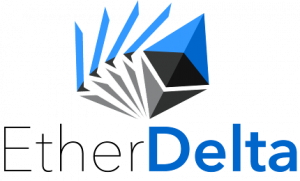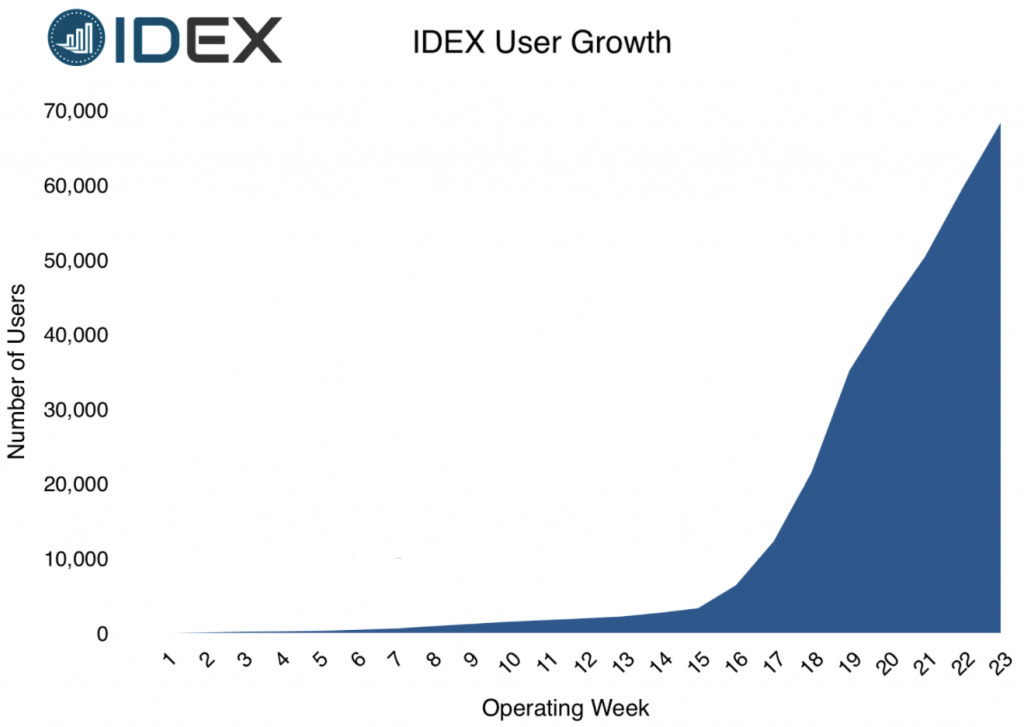
The Myspace/Facebook analogy has been gratuitously overused, yet it aptly describes Etherdelta and IDEX. The former was once the only decentralized exchange in town, a hub of ERC20 tokens bolted to a barely usable interface. Then Etherdelta (ED) got hacked and launched a pointless ICO. While ED floundered, IDEX assembled a user-friendly alternative that was a pleasure to use. Its efforts have paid off: IDEX is now trading $13 million a day while Etherdelta is languishing just above $1 million.
Also read: Paypal Files Patent for Expedited Cryptocurrency Transaction System
A Tale of Two Decentralized Cities
 Cryptocurrency trading, in the early days, was a riot. Erratic trading engines; low liquidity; frequent DDoS attacks and random outages. When the first decentralized exchanges came along, a few years later, it was like the old days of bitcoin all over again. Rickety, unintuitive and verging on unusable, platforms like Etherdelta left a lot to be desired. But they did have one thing in their favor: funds remained in the custody of the user at all times, preventing the possibility of another Mt Gox.
Cryptocurrency trading, in the early days, was a riot. Erratic trading engines; low liquidity; frequent DDoS attacks and random outages. When the first decentralized exchanges came along, a few years later, it was like the old days of bitcoin all over again. Rickety, unintuitive and verging on unusable, platforms like Etherdelta left a lot to be desired. But they did have one thing in their favor: funds remained in the custody of the user at all times, preventing the possibility of another Mt Gox.
Founded in 2016, ED was the only DEX of its kind, and became known as the go-to exchange for acquiring ERC20 tokens before they hit big exchanges. But over the last three months, Etherdelta has waned and in its place a new pretender has emerged – IDEX. On January 15, ED recorded trading volume of $28.5 million versus $728,000 for IDEX. Six weeks later and how the tables have turned. On Saturday IDEX reached a record daily turnover of $13.5 million, ranking alongside established exchanges such as Cryptopia, while ED, crippled by technical issues that have left it hamstrung for weeks, only resumed trading on March 1. In its absence, it’s been usurped by a nimbler and more liquid contender.

Etherdelta’s Myspace Moment
 In truth, Etherdelta’s woes started long before its February outage. The general unusability of the platform was a running joke, though in a weird kind of way it had the effect of ensuring that only determined traders went there. If you were willing to go to the bother of enduring Etherdelta’s UX, you really wanted that token. There was no such thing as a spur-of-the-moment buy. The decline of ethereum’s “flagship” DEX began when Etherderdelta was hacked in December. Given that they don’t hold user funds, decentralized exchanges are meant to be unhackable, but an ingenious attacker hijacked the site’s DNS, replaced it with a lookalike site and stole hundreds of thousands of dollars in ether and tokens.
In truth, Etherdelta’s woes started long before its February outage. The general unusability of the platform was a running joke, though in a weird kind of way it had the effect of ensuring that only determined traders went there. If you were willing to go to the bother of enduring Etherdelta’s UX, you really wanted that token. There was no such thing as a spur-of-the-moment buy. The decline of ethereum’s “flagship” DEX began when Etherderdelta was hacked in December. Given that they don’t hold user funds, decentralized exchanges are meant to be unhackable, but an ingenious attacker hijacked the site’s DNS, replaced it with a lookalike site and stole hundreds of thousands of dollars in ether and tokens.

Rumors that Etherdelta knew a lot more about the hack than it was letting on didn’t help. Nor did it help that the incident occurred just as ED was seeking to raise millions in one of the strangest ICOs of 2017, which is saying something. The Etherdelta token appeared to have no real use case, and in the end, the ICO seems to have quietly disappeared. Whether permanently called off or kicked into the long grass is unclear. To add to ED’s woes, some time in January its Twitter account has also hacked. Decentralized exchanges are meant to operate markedly differently from traditional platforms, and yet Etherdelta was starting to behave a lot like a centralized exchange, and a shady one at that.
The IDEXes of March
With Etherdelta still licking its wounds, the stage is set for IDEX to carpe diem and enjoy a record-breaking March as the biggest decentralized exchange by volume. It’s been impressively expeditious at adding new tokens; tomocoin (TOMO) for instance was available for trading within hours of the ICO finishing. It also helps that the site’s trading interface is remarkably intuitive and almost akin to that of a conventional exchange. IDEX hasn’t been without its problems admittedly; it suffered an outage on March 5, and not for the first time. These blemishes mar an otherwise impressive performance; in the last two weeks alone it’s added 20,000 new users.

The number of decentralized exchanges coming onstream is growing rapidly, and IDEX may have to fight for its position as top dog. Hodl Hodl offers cryptos such as litecoin and bitcoin too, and operates as a sort of hybrid Localbitcoins. Then there’s bitcoin DEX Bisq and Radar Relay, which facilitates ethereum token trading using Metamask. For usability coupled with liquidity, though, IDEX is currently the Facebook to Etherdelta’s Myspace. Provided it can sidestep the sort of pitfalls that have skewered ED (IDEX is launching its own AURA staking token soon), there’s no reason why the platform can’t retain its crown as King of DEXes.
What’s your favorite decentralized exchange and why? Let us know in the comments section below.
Images courtesy of Shutterstock, IDEX, and Bitgup.com.
The Bitcoin universe is vast. So is Bitcoin.com. Check our Wiki, where you can learn everything you were afraid to ask. Or read our news coverage to stay up to date on the latest. Or delve into statistics on our helpful tools page.
The post Decentralized Exchange IDEX Hits $13 Million a Day While Etherdelta Falters appeared first on Bitcoin News.
